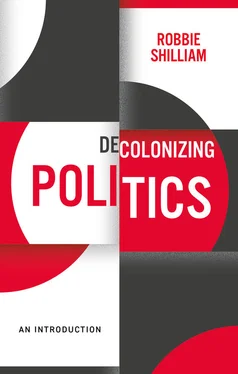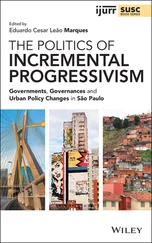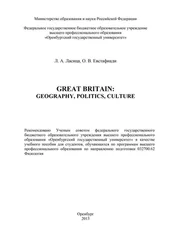Let’s start with Aristotle’s most famous statement: “a human is by nature a political animal” (Aristotle 2017, 4). But what does he mean by nature? As Jill Frank (2004) explains, nature for Aristotle signals “what happens usually and for the most part.” The nature of humans can neither be accidental – which would make that nature inexplicable – nor defined in terms of necessities – which would make that nature unchangeable. Rather, nature is stable enough to be studied, but variable enough such that any study will be imperfect.
Naturally (usually and for the most part) we humans care for each other, whether that be through friendships or families (Salkever 2014, 71). What’s more, says Aristotle, like most animals we are endowed with voluntary action, that is, we can choose to act. However, our capability to choose is a unique one. Unlike animals we can make choices by first using reason to evaluate all the possible courses of action (Aristotle 2014, 38–40).
If we put these concerns for sociability, agency, and reason together, then human nature can be explained in Aristotelian terms as a collective deliberation toward choosing the best course of action by which to attain the good life. Of course, such deliberation involves judgment. And for this reason, judgment is more of an art than a science, requiring practical wisdom, that is, insight applied to particular situations. For Aristotle (2014, 105–106), then, the study of politics cannot be simply the scientific analysis of universal laws but must always be a deliberative discussion about what might be best for the polity in any given time and place.
Still, deliberation requires leisure time and therein lies the rub. Those who plant the fields, raise children, clean households, and manufacture goods do not have any spare time. Therefore, politics can only be undertaken by virtue of a hierarchical division of labor that enfranchises some men as active citizens over and against other people in their household such as women, workers, slaves etc. Here we return to face Aristotle’s conservatism, but in a different light: he wishes to preserve the hierarchical order of settler-colonies that makes politics, and thus the good life, possible.
Recall, though, Aristotle’s understanding of nature as a condition that usually and in the main attains, and is neither random nor necessary. This understanding affects how he conceives of hierarchy. There is a subtle but important distinction between arguing that (a) hierarchy is usual and claiming that (b) certain peoples by necessity and essence occupy certain places in that hierarchy.
And think of all the paths that Aristotle has traveled in his life by the time he writes his Politics . He has moved from a citizen of a colony-city to a resident alien of another city, to a barbarian-sympathizer, to an asylum seeker, to an academic in the court of empire, and back to a resident alien again. All his life he has moved into and through different hierarchies. Given this lived experience of politics, it is reasonable to suppose that Aristotle is trying to sensitize Athenian citizens to the fact that the hierarchical world they live in is changeable. Citizens, too, might not be essentially superior to anyone else. The great can also degenerate.
Take, for instance, one of Aristotle’s most infamous discussions concerning the “natural slave.” As scholars such as Michael Heath (2008) have argued, what distinguishes the citizen from the slave for Aristotle is a very distinct and exacting condition: the practical inability to take part in deliberating on predetermined ends. Aristotle does not mean to imply that the slave is incapable of deliberation, which for him would be the case with a child. Rather, for most of the time and in most cases the slave cannot practically enter into deliberation with others in an independent manner.
Basically, the definition of a natural slave is what the citizen categorically is not. This is no surprise, given the fact that Aristotle’s ideal for the household is a division between citizens and slaves. So long as that division enables citizens to take part actively in politics, that is, deliberation toward the good life, then slavery is ultimately a good thing. The peace and prosperity enjoyed by the master even trickles down to benefit his slave.
We’ll return to these assumptions shortly. But why might Aristotle be making such an argument in his own context? If we refuted the assumption that certain people are essentially born slaves, then anyone might become a slave if the political system they inhabit practically forbids deliberation for the sake of the good life. And Aristotle defines slavery, you’ll recall, as the opposite of citizenship. Consequently, imperial ambition, whether homegrown in Athens or imposed by Macedonia or Persia, might corrupt the polity, foreclose independent deliberation, and produce slavish citizens who must serve despots.
We can also think about the distinction between citizen and barbarian in like manner. Aristotle is influenced by earlier work that attributed the diversity of human capabilities to the effect upon semen production caused by climactic conditions. Yes, it is that graphic. In this model, as Julie Ward (2002) shows, the mild climate in Asia produces gentle, timid folk, while the cold climate in Europe produces wild, belligerent folk. As luck would have it, the Greek climate falls in between the two (Aristotle did not conceive of the Greeks as European) and so produces a balanced disposition of rationality and courage.
Are some people fated by climate to be barbarians? Perhaps, if only that Aristotle considers Greek peoples to display the same range of dispositions internally – European, Asiatic and Greek. So there has to be something additional to geographical location that makes a people barbaric. Actually, Aristotle rarely uses the term “barbarian” except descriptively. He is far more interested in examining the analytical difference between “ethnos,” which he characterizes as a group existing without a common purpose, and the “polis,” a group who share a conception of the good life (Ward 2002). Aristotle defines the Persians as an ethnos: he does not believe that the despotic structure of empire allows for a deliberative, shared conception of the good.
Therefore, in Aristotle’s conception, the difference between peoples is principally, albeit not solely, decided by their political regime. By this logic, there is nothing in nature that prevents Greeks from losing their civilization and becoming similarly barbarous. Pursuing the road to empire might lead to precisely such a loss.
But, once again, it’s important to note that Aristotle’s defense of the polis against imperial degeneration is at the same time a defense of the model colony-city – a small, autonomous, and hierarchical society. This conservative defense not only requires Aristotle to make a distinction between slave, barbarian, and citizen, regardless of which peoples might populate such distinctions at any time. It also requires a defense of the patriarchal household that provides the opportunity for male heads of those households to be citizens.
Once more, let’s be careful with our reading of Aristotle. He does not claim that males represent the apex of the species, nor that the essence of humanity lies in sex differentiation (see Henry 2007). But he does identify the primary difference of sex in terms of the ability to produce semen. When it comes to species reproduction, females provide only the inert matter, while males sculpt the form. Shaping and changing human nature – that’s a man thing. When that shaping occurs through politics, as is the nature of humans – this too is a man thing.
In modeling the small self-determining colony-city, Aristotle presumes that the nature of politics is best served by patriarchal hierarchy, although not imperialism. But is a hierarchical polis the only regime through which humans can deliberate in order to attain and preserve the good life? Put another way, has nothing of value for the good life ever been thought of or said by those who exist at the bottom of or outside of that hierarchy: metics, women, slaves, and barbarians?
Читать дальше












